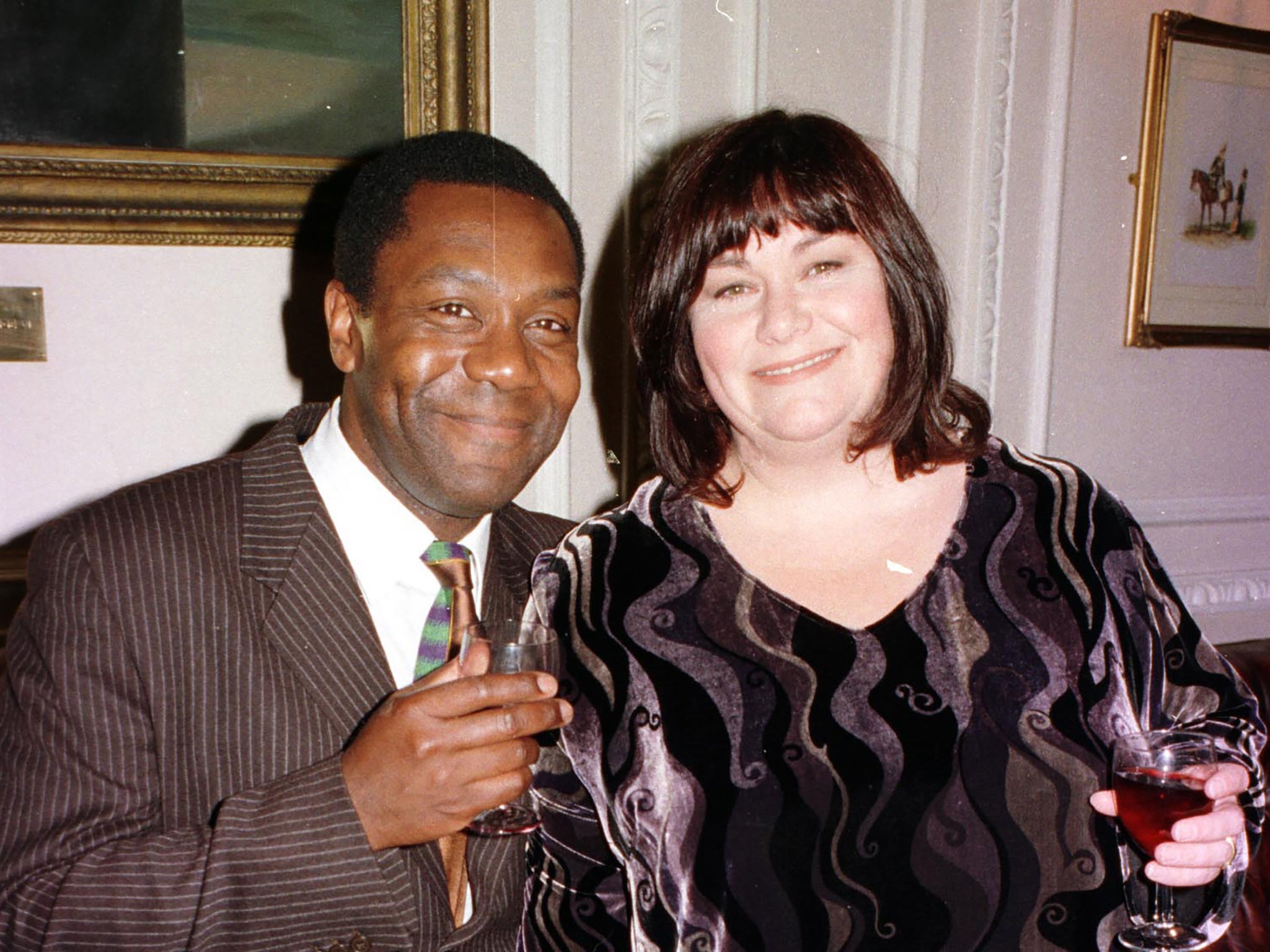Should you stay friends with your ex and how do you make it work?
Dawn French has said she and Lenny Henry have ‘shifted with relative ease from a 25-year marriage to a lasting friendship’ – but is it so easy for everyone? Kate Ng chats to an expert


It’s a no-brainer that going through a breakup can be tough and sorting out your emotions can seem like an insurmountable task when you’re in the thick of it.
Relationships are often messy and, between navigating heartbreak and singledom, many people ask themselves: “Should I stay friends with my ex?”
In a new interview, the comedian and actor Lenny Henry discussed falling in love with his former wife Dawn French, speaking of her with such glowing respect that it’s no surprise the pair are still close despite splitting up in 2010.
“Even at the worst of times we used humour as sword and shield,” he writes in his new book, which has been excerpted in The Sunday Times. “My mind was at last tuned in, focused and functioning as an equal in a relationship. In other words, I was in love.”
The pair, who share a daughter together, remain friends, with French saying in 2017 that they’ve “remarkably [seemed] to have shifted with relative ease from a 25-year marriage to a lasting friendship”, adding: “I am amazed by us.”
Of course, not all breakups have to end with both parties going completely separate ways and never speaking to one another again. Many people have successfully navigated their way to friendship after splitting from a former romantic partner.
But how do you make it work? And how do you know when you should or shouldn’t stay friends with your ex?
Bec Jones, a divorce coach from Amicable, an online divorce service, breaks down the pros and cons of staying friends with your ex:
What are the benefits?
In any relationship, people tend to share a lot more than just a bed or a flat – children, friends, and even pets can become points of contention when a split occurs.
However, staying on good terms with your ex can make it easier to navigate these shared relationships. If you have children, Jones says staying friendly will mean being able to “enter into a healthy, co-parenting relationships with each other”.
“Although you’re no longer in a romantic relationship, your children will see you still have a good relationship together which is likely to reduce stress and worry they may feel as a result of your separation,” she tells The Independent.
“If you don’t have children, you and your ex may have the same friendship group. Remaining friends means both your lives don’t have to completely change now that you’re no longer together,” says Jones.
“This could also make the breakup easier for you both as you’re not saying goodbye forever, just shifting from a relationship to a friendship – you’ll still remain in each other’s lives.”
What are the risks involved?
However, if the breakup was not mutual, things could be a lot more difficult and trying to remain friends might not be the best option, warns Jones.
“If you were the one left heartbroken, then any hope of a friendship could lead to you and your ex re-kindling your romance, which could leave you more hurt down the line,” she says.
On the other hand, if the breakup was initiated by you and you pursue a friendship with your ex, it could prevent them from being able to let go of what you had before and move on.
You should also think about how you would feel if your ex enters a new relationship with someone else, and you have to engage with both of them further down the line.
“For example, if you’re in a co-parenting relationship, seeing your children around a new ‘parent’ figure in their lives could be difficult,” says Jones.
“When this is the case, remaining on amicable terms may be easier than engaging in a full-on friendship with your ex and their new partner.”
How do I know if I shouldn’t stay friends with my ex?
There are some situations in which staying friends with your ex isn’t an option, such as if the relationship was “abusive, manipulative or toxic in any way”.
You may also need time alone to process the end of the relationship, and might not feel ready to be friends with your ex. This is normal and understandable, and you shouldn’t feel pressured into doing something you aren’t comfortable with.
“It’s vital each partner takes their time to recover and rebuild independently at the end of a long-term relationship,” advises Jones.
How can I make a friendship with my ex work?
If staying friends is something you both want, there are some boundaries you should set to avoid slipping back into old habits.
“I’d recommend having some time apart before jumping into a friendship,” says Jones. “Divorce, separations and breakups are hard and emotional; allowing time for both people to heal from the relationship breakdown will make the friendship more robust and genuine.”
She also advises ex-partners to avoid spending time with one another in a “romantic setting or in places that remind you of your relationship together”. So no late night dinners or hanging out in sentimental locations.
“Keep an eye on how and when you’re in contact,” she adds. “Late night texts with kisses at the end, for example, can send mixed signals. Keep your communications more business-like but still friendly.”
Join our commenting forum
Join thought-provoking conversations, follow other Independent readers and see their replies
Comments





Bookmark popover
Removed from bookmarks